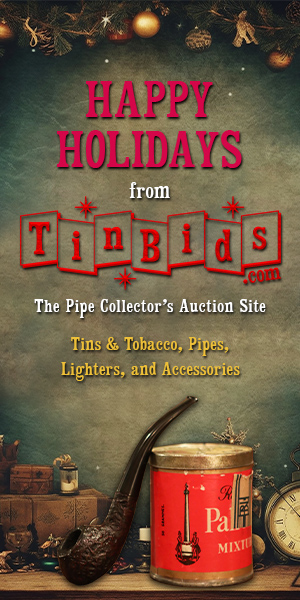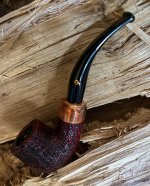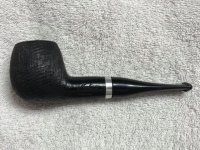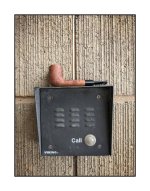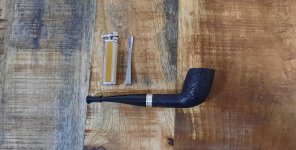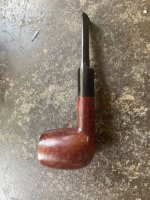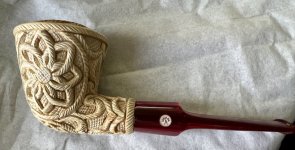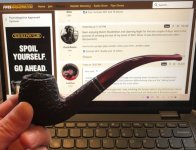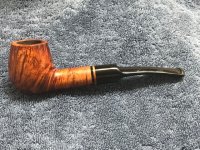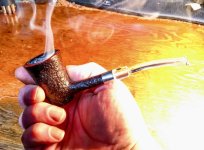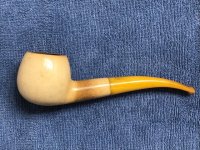***What Are You Smoking, January 2023?***
- Thread starter JimInks
- Start date
You are using an out of date browser. It may not display this or other websites correctly.
You should upgrade or use an alternative browser.
You should upgrade or use an alternative browser.
SmokingPipes.com Updates
Watch for Updates Twice a Week
- Status
- Not open for further replies.
Enjoyed a tall stack of cinnamon raisin French toast with a sliced orange and a few pecans on the side. I'm half way through this bowl of Seattle Pipe Club Deception Pass plug in a smooth straight brown late 1930s Linkman’s Dr. Grabow Deluxe Bruyere 9703B pot with a nickel accent and a black tapered vulcanite stem. Gold Star Jamaican Estate Reserve, neat, is my drink.
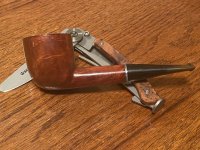

Enjoying a bowl of HU Nyala with a coffee. I hope you're all having a good week. 

Well, the teacup is written with some kind of father's life instruction, which can be understood as a list of what to do and what not to do. Your teacup requires that you often worship your ancestors, respect all gods, and often worship the Buddha. Therefore, if you are a Christian or other Semitic monotheist, in order to avoid violating the first and second of the Ten Commandments, you'd better not listen to your teacup.I don’t know what is inscribed.
When I was in Japan training with the Japanese army many years ago circa 2003, I picked this up while I was there. Been drinking tea out of it for quite a while.
So, now that you’ve sparked my interest, what does it say?
I picked up this teapot and cup while I was it in Uzbekistan on a Graduate Course, Country Study while in the Army. Really like this one.
View attachment 197494
BTW,This set of Central Asian style tea set is a good collection.
Prince Albert in a meer this afternoon.
Thanks for the interpretive insight. The diversity of religious faith and practices is far-reaching and vast. In my travels over the years, I’ve had wonderful conversations with people of other faiths. Probably won’t be listening to my tea cup- just enjoying good cups of teaWell, the teacup is written with some kind of father's life instruction, which can be understood as a list of what to do and what not to do. Your teacup requires that you often worship your ancestors, respect all gods, and often worship the Buddha. Therefore, if you are a Christian or other Semitic monotheist, in order to avoid violating the first and second of the Ten Commandments, you'd better not listen to your teacup.
BTW,This set of Central Asian style tea set is a good collection.
- Status
- Not open for further replies.





